12th, May 2019 | Donna
Contact Lens Users, Take Care of Your Eyes
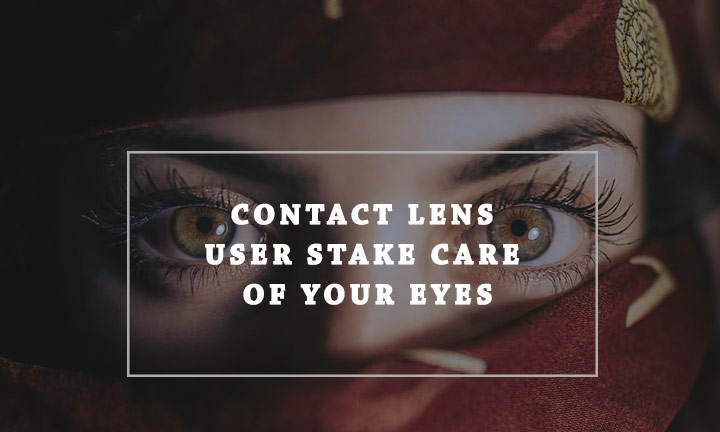
Contact lenses and eyeglasses are both useful when it comes to improving your vision or adding pizzazz to your look.
Most people, however, still choose prescription glasses over contact lenses because there have been many news about mishaps involving contact lenses.
It is important to take extra care of your eyes to avoid mishaps and to make sure that your contact lenses don’t get in the way of your everyday life.
Here are some tips on how to care for your eyes if you’re a contact lens user:
1. Always follow your doctor’s advice.
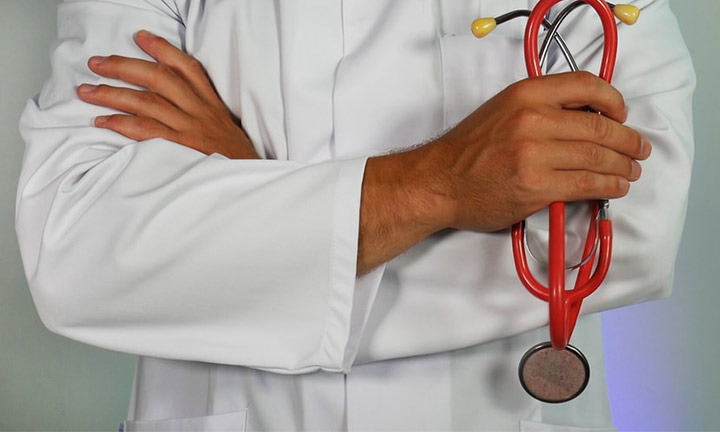
There are a lot of contact lens types and these contact lenses are created to be wearable, safe, and less hassle to use compared to prescription glasses. [READ: 5 Types of Contact Lenses That You Should Know]
These different types of contact lenses also require different degrees of care.
To make sure that your eyes are safe from any further damage, it is necessary to seek for your doctor’s advice on how long you are allowed to wear your contact lenses everyday and how often you should change your contact lenses.
For first time contact lens users, read HERE’S WHAT TO DO WHEN YOU WEAR CONTACT LENSES FOR THE FIRST TIME: A BEGINNER’S GUIDE.
2. Wear the contact lenses with the correct prescription.
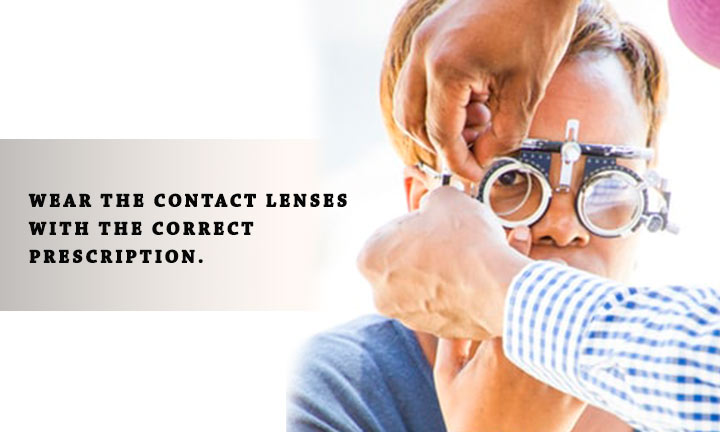
If you are using contact lenses to improve your vision, nothing is worse than ending up with wrong prescription contact lenses.
Instead of having improved vision, you may end up dealing with blurry vision, discomfort, and other eye problems.
Always consult your eye doctor before buying contact lenses to make sure that your prescription is accurate.
It is also important to remember that prescriptions for contact lenses and eyeglasses are different.
This is because eyeglasses sit a few millimeters from your eyes, while the contact lenses lie directly on the surface of your eyes.
You can bring your prescriptions when you’re travelling. These prescriptions are globally recognized.
So, if you ever lose your contact lenses while you’re in another city or country, you can always get a replacement with the accurate prescription.
Your contact lens prescription may also look a bit too technical, but it doesn’t mean that it’s impossible to understand.
To understand your contact lens prescription, read UNDERSTAND YOUR CONTACT LENS PRESCRIPTION.
3. Don’t sleep in your contact lenses.

Admit it, there are times when you’re just too exhausted that when you come home, you just want to plop down on your bed and go to sleep immediately.
If you’re a contact lens user, you might want to remove your contact lenses before doing these things.
In an interview with huffpost.com, ophthalmologist Rebecca Taylor mentioned that wearing your contact lenses when you sleep may cause oxygen deprivation of the cornea.
Sleeping in your contact lenses also causes the contact lenses to tighten in your eyes, and this may cause microscopic rips in the cornea.
On the other hand, some contact lenses are approved by the Food and Drug Administration (FDA) to be worn overnight, so make sure that you consult your eye doctor before purchasing contact lenses.
[READ: REASONS WHY YOU SHOULDN’T SLEEP IN YOUR CONTACT LENSES]
4. Remove contact lenses whenever you engage in any activity where water gets in your eyes.
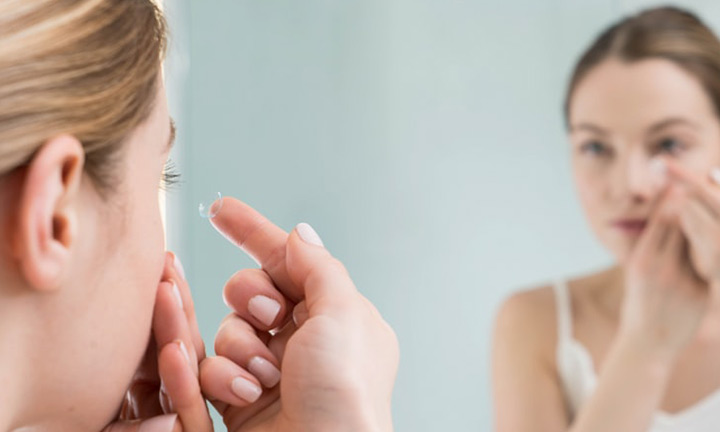
When you first get your contact lenses, your eye doctor surely gave you a short discussion about hygiene and contact lens care.
One of the things that doctor emphasize was to not allow water to get into your eyes and contact lenses.
Getting water into your eyes while you’re contact lenses is one of the best (or worst) ways to make your eyes vulnerable to harmful microorganisms.
Soft contact lenses may change their shape and stick to the eye when they come in contact with water. This can cause discomfort and your cornea is, once again, at risk of microscopic scratches.
Meanwhile, contact lenses can also absorb tap water, which may cause the lens to swell. Swollen contact lenses can tighten in your eye, which may also cause microscopic rips to your cornea.
All of these may end up in serious eye infections, or even blindness.
To avoid getting water in your contact lenses, always take them off before taking a shower, swimming, or doing other activities that may put your contact lenses at risk of being exposed to water.
Lastly, NEVER wash your contact lenses with water. Use contact lens solution instead.
If your contact lenses ever get in contact with water, Centers for Disease Prevention (CDC) advises contact lens users to throw the contact lenses away.
If this is too much for the users, they can disinfect their contact lenses overnight.
5. Give your eyes a break.
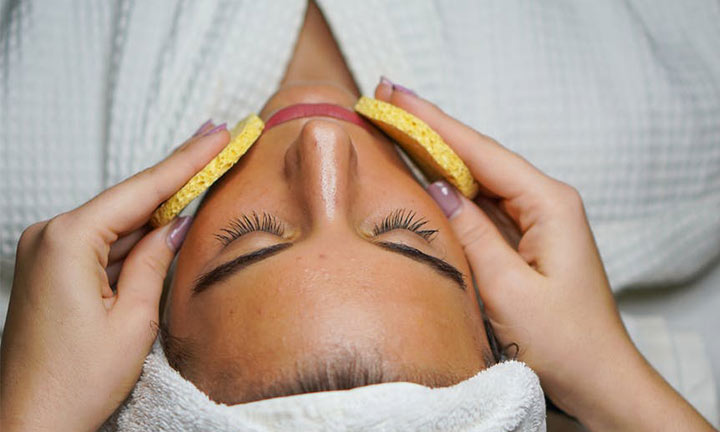
Oxygen is necessary for your eyes to remain healthy. Contact lenses cover a part of or your whole cornea. This results to a decrease in the amount of oxygen that reaches your eyes.
Maintaining the flow of oxygen in your eyes is one way to take care of your eyes. To keep the oxygen flowing healthily into your eyes, it is better to remove your contact lenses when you don’t really need it.
This way, your eyes can “breathe” and be replenished with all the oxygen that it needs to remain healthy.
Giving your cornea some “fresh air” also decreases the risks of having eye diseases.
6. Don’t skip your annual eye examination.
Knowing your prescription doesn’t mean that you no longer have to visit your eye doctor for your annual checkup.
People usually visit their eye doctors only to get their eye prescription or when their vision gets worse even after wearing contact lenses or prescription glasses. Eye checkups has more to offer than just prescriptions.
Did you know that during comprehensive eye examinations, doctors can actually detect other health problems?
Doctors can check the conditions of the blood vessels of your retina to predict the health of all the blood vessels all throughout your body. Doctors can detect health concerns like diabetes and hypertension based on the appearance of the blood vessels and blood supply in your retina.
Isn’t that cool? If you haven’t visited your eye doctor in years, it’s time to schedule an eye examination as soon as possible.
7. Never use other people’s contact lenses.
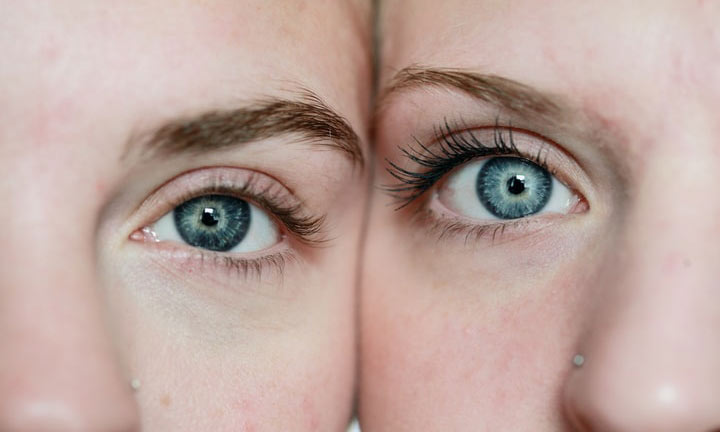
People may not care about using other people’s, even your friend’s, contact lenses. What could go wrong, right? A lot of things can go wrong.
First, your prescription may not match the prescription of your friend’s contact lenses. As mentioned, wrong prescription may cause blurry vision, discomfort, and other eye problems.
Second, who knows what kind of microorganisms and germs live in those contact lenses. Even if you say that you know your friend so well, they may have done something wrong to those contact lenses.
Borrowing other people’s contact lenses is also one of the best, or worse, ways of spreading eye diseases from one person to another. It’s like borrowing a toothbrush. It’s unhygienic.
8. Eat fruits or vegetables that are good for your eyes.
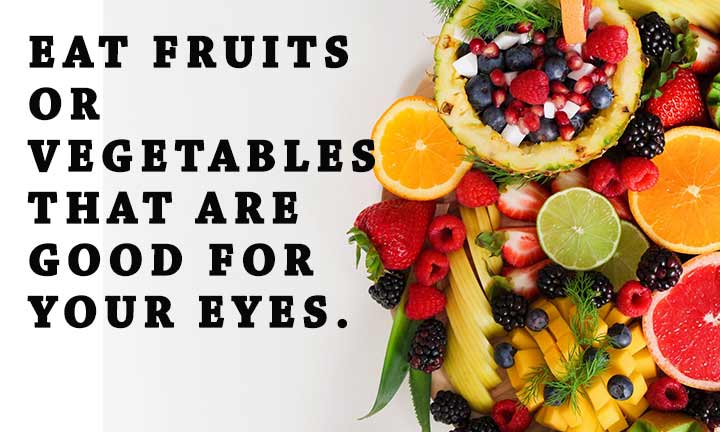
Aside from giving your eyes a break from contact lenses, or religiously following all the advices of your eye doctor, eating fruits and vegetables that are good for the eyes is one of the most natural way of taking care of your eyes.
You may not naturally have the perfect 20-20 eyesight now that you need corrective eyeglasses or contact lenses. But by eating specific fruits and vegetables, you can always prevent your eyesight from getting worse.
Adults usually tell children to eat certain vegetables because they’re good for the eyes. But for children, vegetables really don’t seem appetizing when eaten on their own.
This is the reason why parents have to be creative in cooking dishes that hide the taste of vegetables in them.
To know more about recipes that are good for your eyes, read HEALTHY RECIPES FOR GOOD EYESIGHT THAT YOU CAN EASILY PREPARE AT HOME.
Read more from the sources that we trust:
https://www.livestrong.com/article/193947-the-effects-of-wearing-wrong-prescription-contacts
https://www.huffpost.com/entry/contact-lens-hygiene-questions-answers-eye-health_n_3950593
https://www.cdc.gov/contactlenses/water-and-contact-lenses.html
https://www.aao.org/eye-health/glasses-contacts/contact-lens-care
https://www.allaboutvision.com/contacts/contact-lens-tips.htm

Leave a Reply
You must be logged in to post a comment.